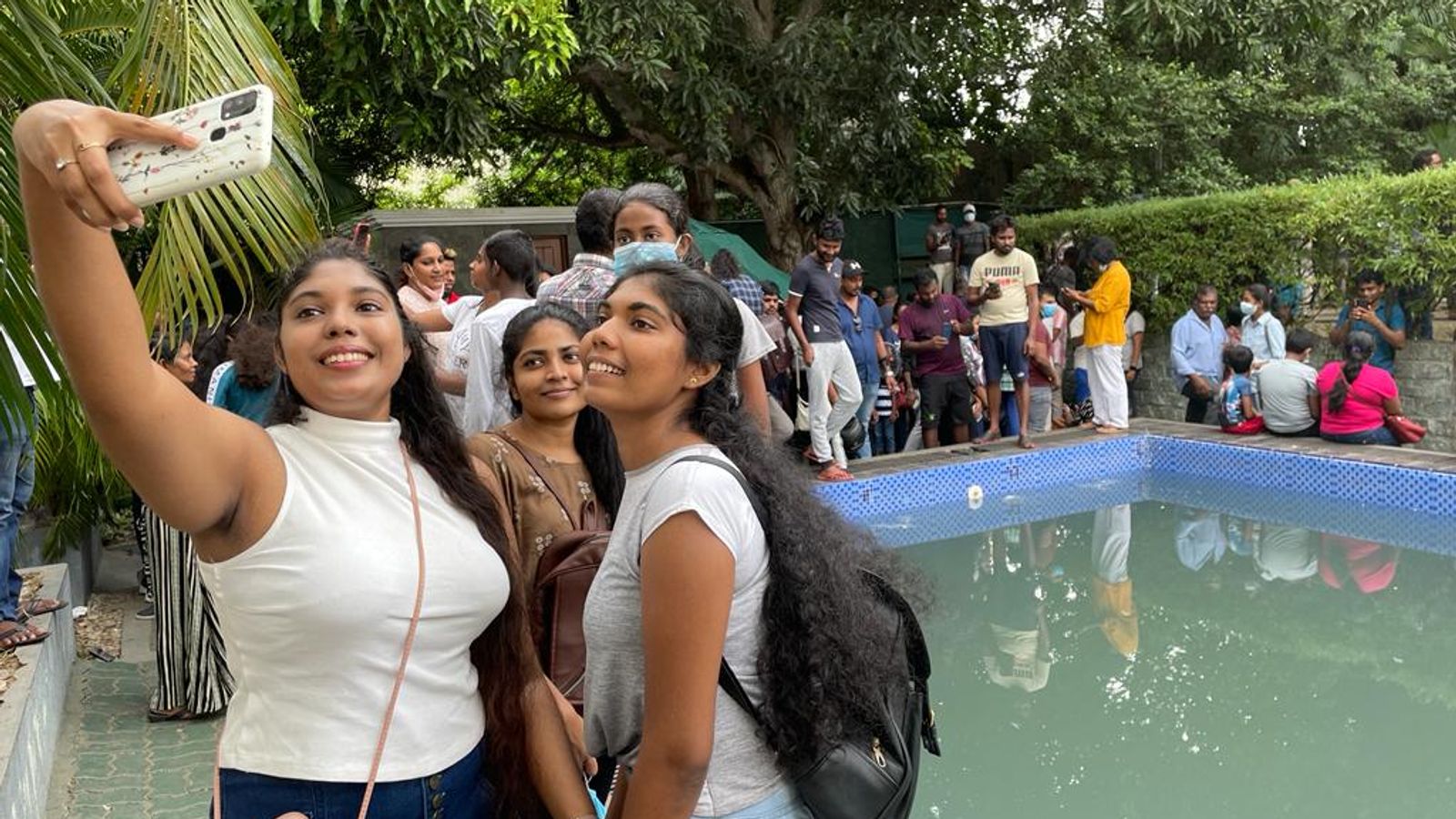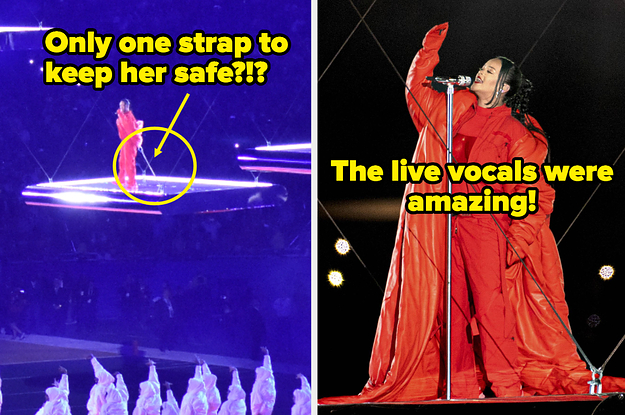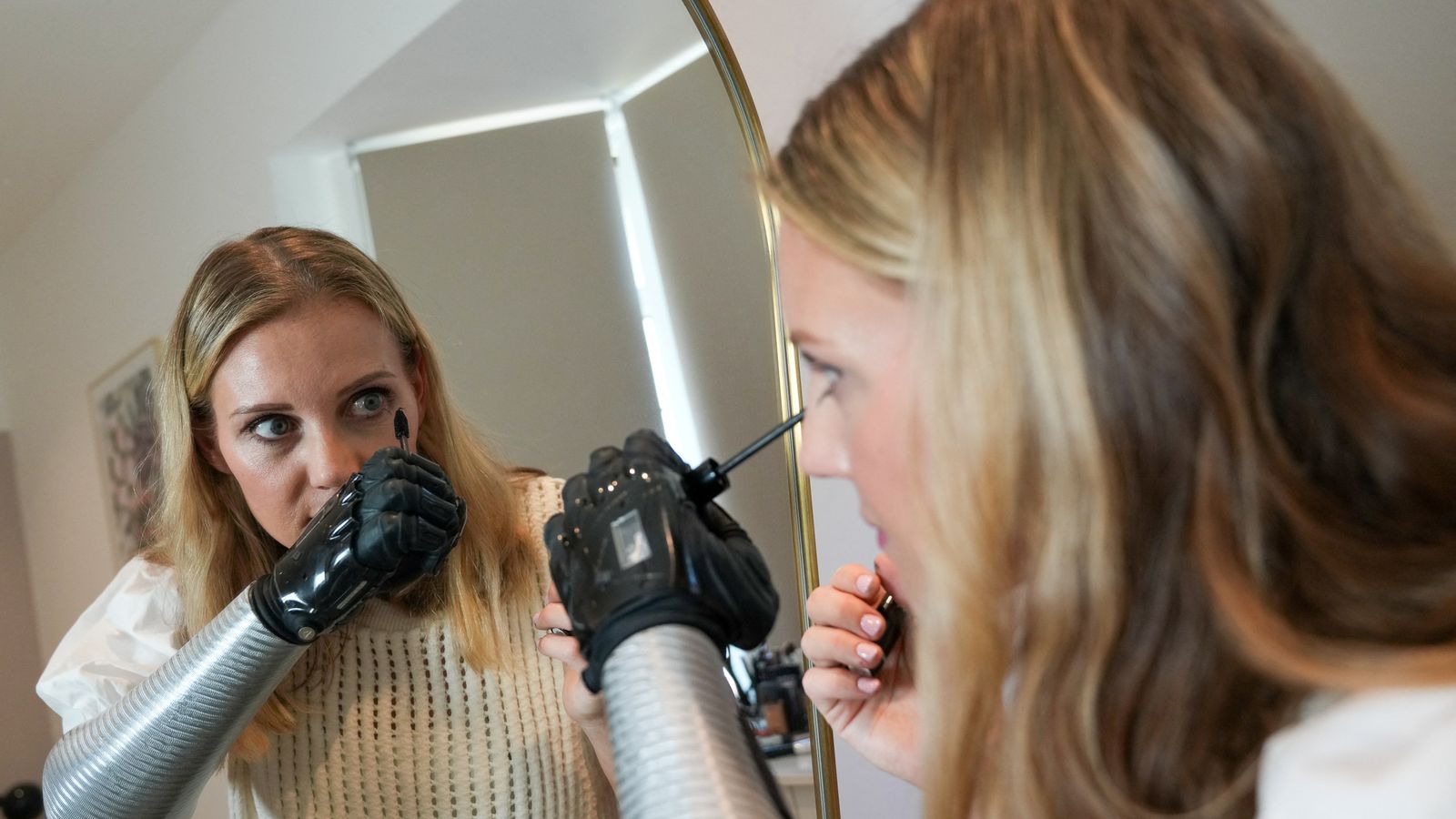Sri Lankans are roaming through the ransacked presidential palace a day after it was stormed by thousands of people angry at the country’s worst economic crisis in decades.
President Gotabaya Rajapaksa and Prime Minister Ranil Wickremesinghe both announced they were going to step down in the face of the protests.
The prime minister’s private residence was set on fire on Saturday evening after a day of turmoil in Colombo.
Calm returned to the city on Sunday.
Thousands have been milling in and around the presidential palace with their families, and streams of people with young children and food hampers queuing to go into the president’s house.
Speakers have been set up in the trees telling visitors to be patient and queue in a one way system for a “bizarre” tour around the palace.
Indika Jayawaradana, who is visiting the residence along with his wife and two children, says: “They thought we got independence from the British in 1948 but today is our real Independence Day.”
About the president, he adds: “He might leave but he might be replaced with someone loyal to him. I’m worried about that.”
The protest organisers, who were some of the first people to break into the residence, have turned into tour guides.
They hurry the crowds to move along and follow instructions from the loudspeakers.
They are in total control of the building. Some police are outside – other officers wander through the crowds, taking photos like everyone else.
39 people hurt during protests
Please use Chrome browser for a more accessible video player
There doesn’t appear to be any attempt to stop this.
During the protests on Saturday, 39 people, including two police officers, were hurt.
Police fired shots in the air but they were unable to stop the angry crowd from surrounding the president’s residence.
Hundreds of flag-bearing protesters packed inside the president’s sea-front property and used the swimming pool on a Facebook livestream.
Picnics and lounging in the palace
Protesters also assembled outside the Presidential Secretariat, the office of the president, and the home of prime minister.
Both Mr Rajapaksa and Mr Wickremesinghe had been moved to a secure location.
Sri Lanka, home to 22 million people, is facing its worst economic crisis in seven decades since it achieved independence in 1948.
Inflation hit a record 54.6% in June and is expected to soar to 70%, piling pressure on the cash-strapped population.
The country has been struggling under a severe foreign exchange shortage that has limited essential imports of fuel, food and medicine.
Many blame the decline on Mr Rajapaksa.








